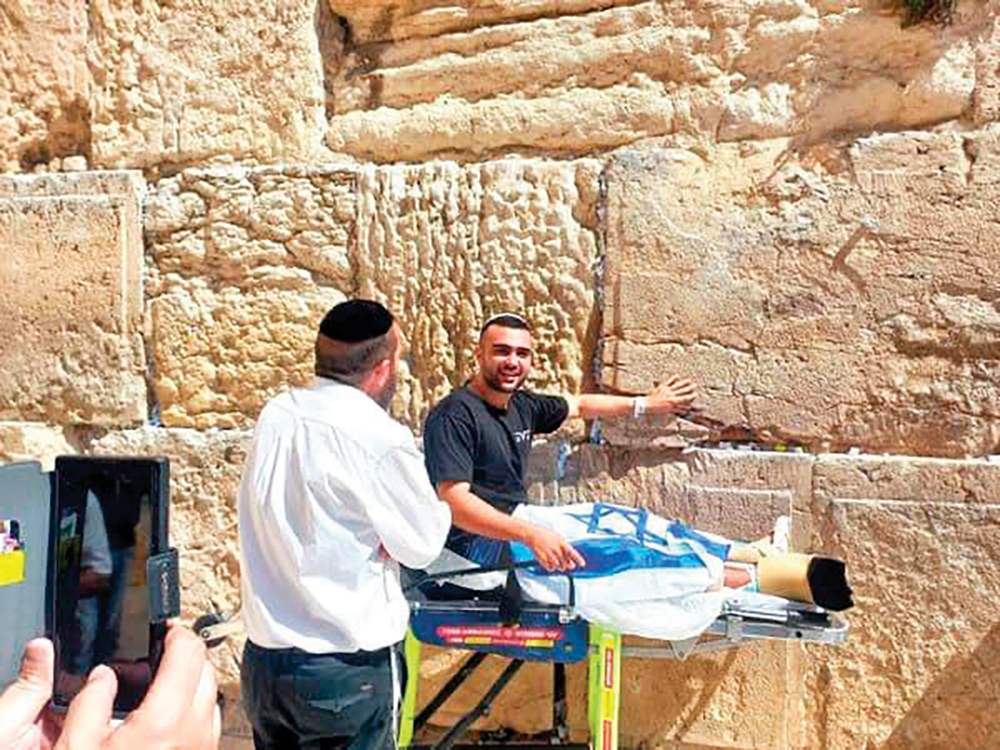
Translated by Yehoshua Siskin
Recently, the somber news emerged that Major Daniel Perez, previously reported as a hostage, was tragically no longer among the living. Our hearts go out to his parents, Rabbi Doron Perez and his wife Shelley. Both are renowned for their enduring faith, optimism and resilience since Simchat Torah. Rabbi Doron, in particular, has touched many lives through his impactful lectures in Israel and around the globe, offering comfort and strength to those facing adversity.
Rabbi Doron shared his personal coping mechanism, emphasizing the importance of living in the moment while acknowledging the broader narrative of the Jewish people. “Focus on the now, but also realize that we are part of something far greater,” he said, highlighting the collective journey and significance of the nation of Israel.
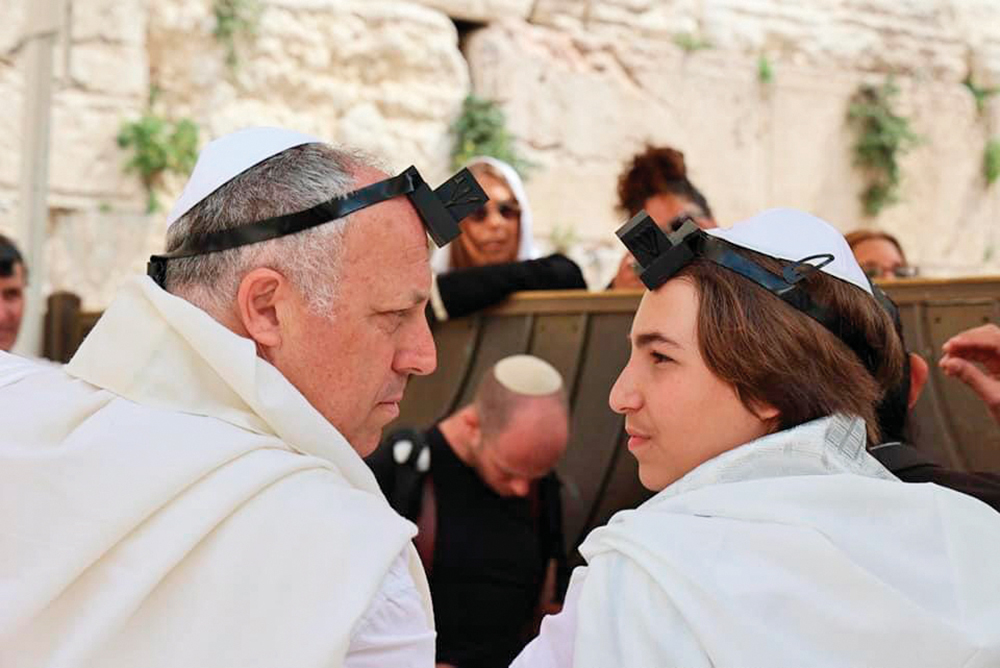
During a period marked by uncertainty over Daniel’s fate, the wedding of the Perezes’ son Yonatan became a poignant reminder of the enduring spirit of joy and faith. Rabbi Doron reflected on this experience, noting, “We honored Daniel’s memory under the chuppah, allowing ourselves to mourn before embracing joy, reminiscent of Jeremiah’s prophecy of enduring gladness in Jerusalem.”
Rabbi Doron, executive chairman of the World Mizrachi movement, has long championed Jewish education and identity. He observed that the challenges faced by the Jewish community have unexpectedly fostered a deeper sense of unity. “Hamas wanted to destroy us, but instead, strengthened us,” he said. “Something phenomenal will grow from the events of Simchat Torah. Just as the darkness that we saw then is incomprehensible, the brightness of the light to come will likewise be beyond what we could ever imagine.”
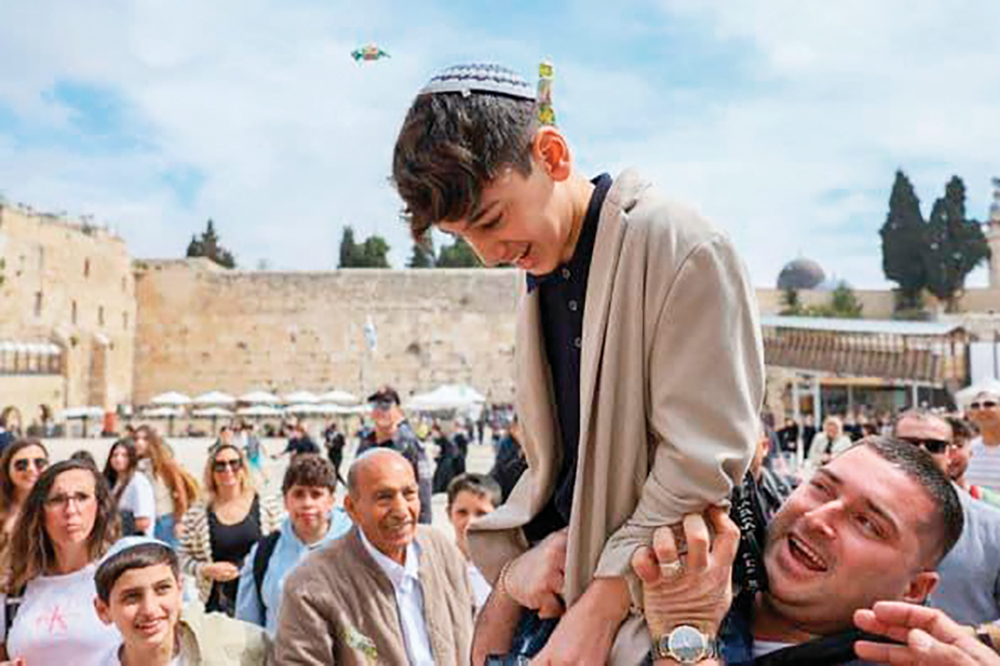
*In memory of Daniel Shimon ben Doron.
Jerusalem Consoles
“Come to Jerusalem!” was my message at the outbreak of the war, a sentiment that holds even more weight today. The city of Jerusalem possesses a unique power to heal and unite. Among its ancient stones, one can find groups of displaced families, recently discharged reservists and their families, educators and students, young people celebrating their bar and bat mitzvahs, and international visitors on solidarity missions. Their presence in Jerusalem, particularly now, is no coincidence.
During a deeply moving event at the Kotel Tunnels, I addressed families coping with immense loss. I shared with them a traditional consolation, “May God comfort you among all those who mourn for Zion and Jerusalem,” underscoring the eternal connection to Zion and Jerusalem in our collective comfort. This sentiment is echoed by the Navi Yeshayahu, “And in Jerusalem you shall be comforted,” and further explained in the Metzudat David commentary to mean that Jerusalem is where one finds solace and blessings amidst grief.
The profound impact of Jerusalem’s solace was visible in the reactions of those grieving. A father, emerging from the tunnels with tears in his eyes, shared a moment of profound connection to our shared past and future, and his family’s place within it. A mother was left speechless by the overwhelming emotions elicited by the Kotel’s stones.
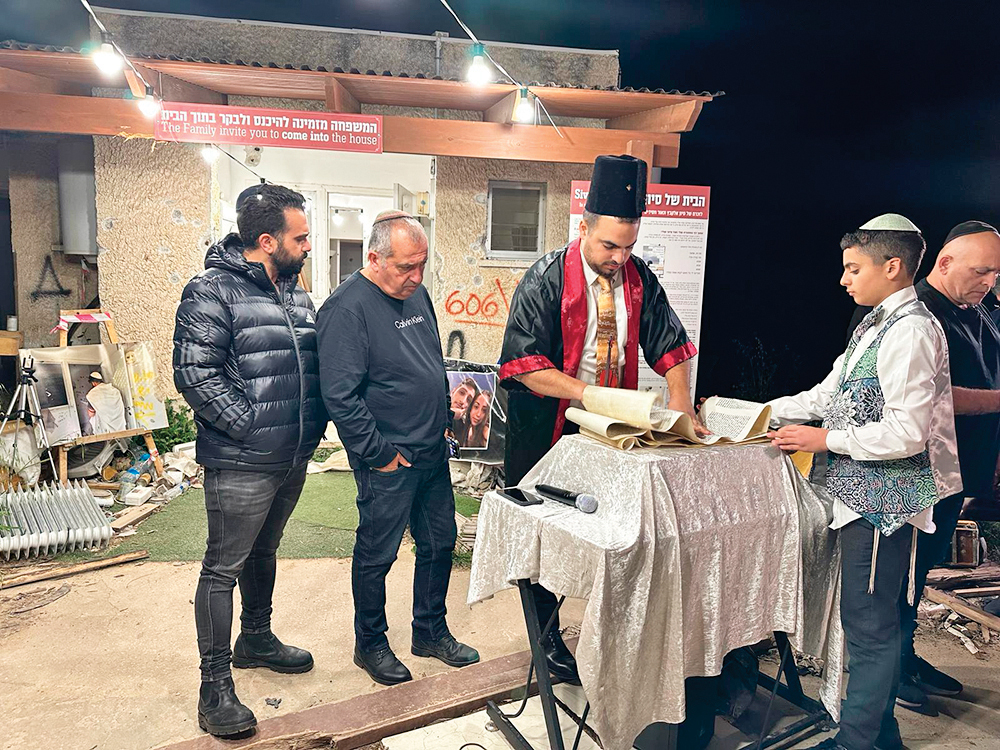
The World’s Loudest Prayer
Several weeks ago, Amos Meron wrote to me that he thought we should announce Ta’anit Esther as a day of worldwide prayer. I recalled our correspondence and my thought at the time that the idea was good but pretentious. However, before I could respond, he’d already sent me a draft of the first announcement: “Esther HaMalka taught us that we need to unite and cry out,” he wrote. “This will be a great day of fasting and prayer.”
Two days later, Amos sent me another message: “This is beginning to move forward. We already have numerous partners, and they’re turning this into a professional campaign. We contacted representatives of the hostages, evacuees, bereaved families, families of wounded soldiers. Everyone is interested in becoming part of the story. We also received permission to broadcast from the Kotel. Jews from 47 countries will be with us for a live broadcast, and at 5:30 p.m. Israel time, we’ll all recite the Shema together.”
The campaign continued to grow. Israel’s President Yitzchak Herzog called for a worldwide Shema, and friends from New York, London, and even Ukraine wrote to me that their communities would join the recitation of the Shema at the appointed time.
What I learned from this is not only the power of Esther HaMalka, but also, the power of a single individual to make a dream—one that necessitates the participation of millions—come true.
A Historic Purim
As Purim approached this year, many wondered how we could possibly celebrate. Yet, millions of Jews worldwide demonstrated a way to celebrate with sensitivity and significance, breathing new depth into the holiday’s customs and laws. For instance, individuals across Israel prepared the favorite recipes of captives, incorporating these dishes into their mishlochei manot as a tribute. Similarly, memorable phrases associated with those who’ve fallen were included in mishlochei manot, serving as a heartfelt dedication to their memory. The celebrations—feasts, parties and costumes—connected with the ongoing events around us.
An extraordinary instance was the reading of Megillat Esther in Kfar Aza, right at the entrance to the home where Sivan Elkabetz and Naor Hassidim tragically lost their lives.
Shimon Elkabetz, the former commander of the Israel Defense Forces’ Galilee Corps, and his wife Anat, the grieving parents of Sivan, shared: “We were shaken to our core when we heard the name ‘Haman’ here, on this blood-soaked ground. We hugged and sang the verse, ‘LaYehudim hayta ora v’simcha.’ From the days of the wicked Haman until the seventh of October—they try to harm us because we are Jews. Facing the border of Gaza, with the sound of our forces’ explosions in the background, we came to tell ourselves and the world: Am Israel Chai, forever.”
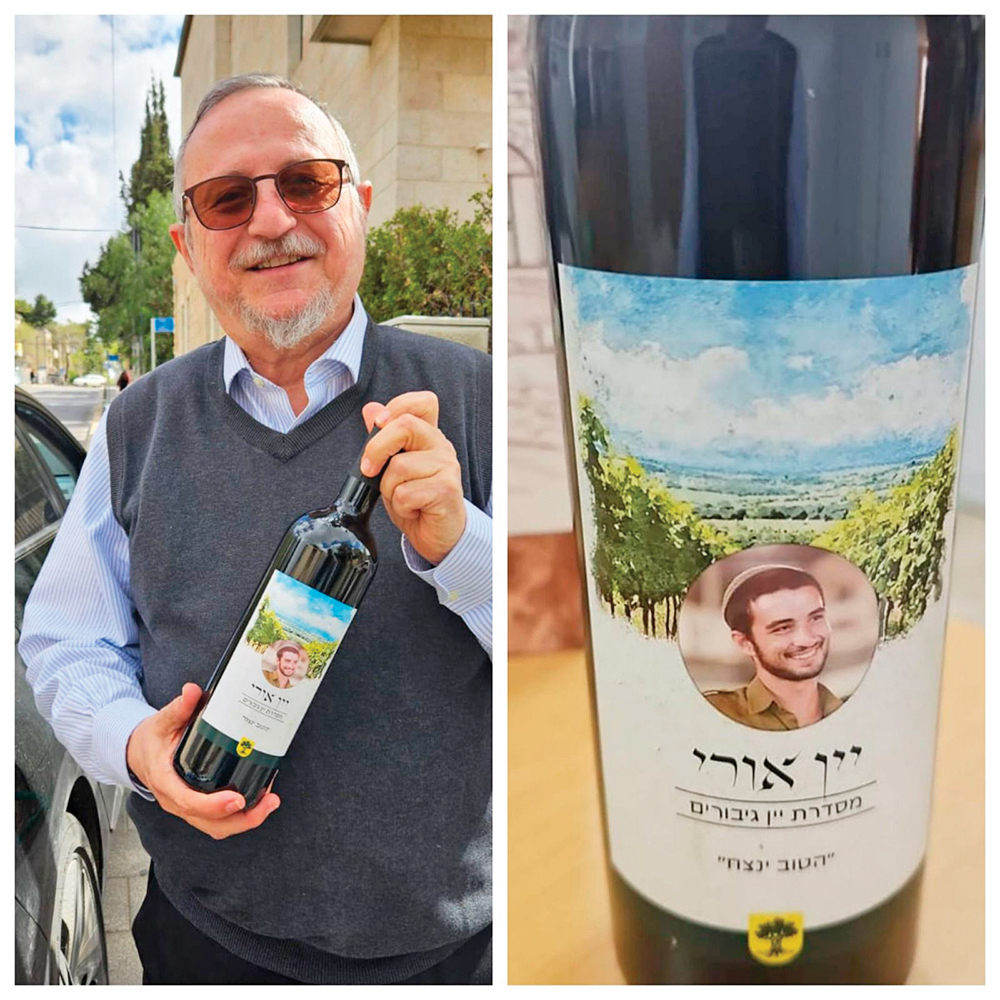
Purim Joy Amidst the Tears
Yehoshua Shani’s son, Uri Mordechai, fell in battle on Simchat Torah. Since that day, he said, the words from Shulchan Aruch, “Strengthen yourself like a lion,” which instruct us how to get up in the morning, have taken on new meaning. “Our constant challenge is to strengthen ourselves to overcome the incredible pain, to get up each morning to a new day of work and action. This Purim, our joy was mixed with tears and fond memories, but our family chose to try and see the light within the darkness, as Uri himself had always taught us.”
At the Purim seuda, the Shani family sat together with a bottle of “Uri’s Wine” on the table—to bring Uri’s spirit to the gathering and add more light.
“It’s important for us to convey this message to our amazing nation,” said Yehoshua Shani. “Joy is not about losing all restraint, but connecting to eternity. It’s part of our consolation. It’s part of the victory over our enemies. And within the joy and the tears, we pray that we will merit a speedy victory, with the return of all the hostages to their families.”
Sivan Rahav Meir is a primetime news anchor on Israeli television with a regular column in Yediot Aharonot, Israel’s largest newspaper, and a weekly radio show on Galei Tzahal (Army Radio). She has a tremendous following on social media for her insights into Jewish life and tradition. Her lectures on the weekly Torah portion are attended by hundreds, and the live broadcast attracts hundreds of thousands more viewers across the globe. She was recognized by Globes newspaper as the country’s most popular female media figure and by the Jerusalem Post as one of the 50 most influential Jews worldwide. She lives in Jerusalem with her husband Yedidya and their five children.












